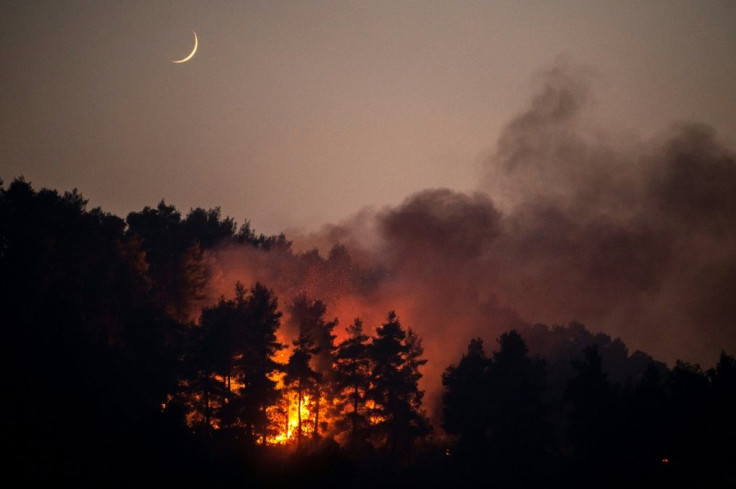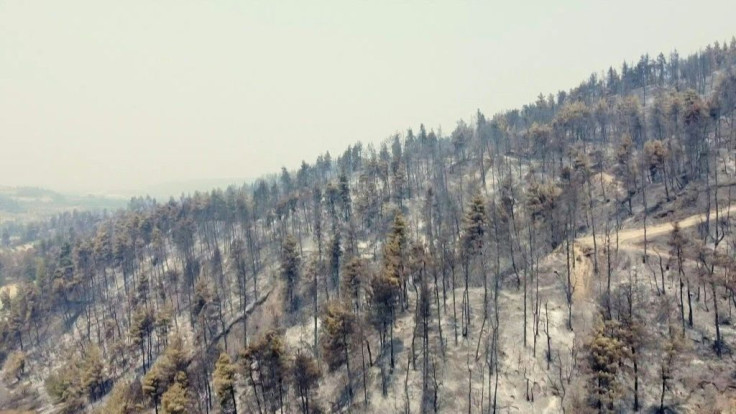Greece Fires Under Control As Reconstruction Begins
Fires burning for more than a week that caused Greece's worst ecological disaster in decades were finally brought under control on Friday, the fire department said, as the government raced to fund reconstruction amid mounting anger.
"As of yesterday, there is no major active front, just scattered pockets," a fire department spokesman told AFP.
Rain and falling temperatures helped the fire-dousing effort, but crews remain on alert for possible flare-ups in hard-to-access ravines on the island of Evia and in the region of Arcadia in the Peloponnese, the spokesman said.

But with strong winds forecast for the weekend, the bulk of a huge multinational force that assisted Greek firefighters this week remains in place, civil protection spokesman Spyros Georgiou said.
"They are helping to monitor the perimeters of burned areas in Evia and Arcadia, which are many kilometres long," he said.
"Many of them are actually requesting to remain."
In Evia, there were more than 400 Moldovans, Poles, Serbs, Slovaks, Romanians and Ukrainians assisting Greek forces. Over 550 Austrians, Czechs, French and Germans were in Arcadia.

Hundreds of homes and many businesses have been destroyed in Evia, Arcadia and the outskirts of Athens in the prolonged fire wave that struck Greece from late July and intensified last week, during the country's worst heatwave in decades.
Greece is just one of a number of countries in the Mediterranean region that have been hit by a savage fire season.

Heatwaves have become more likely due to climate change, scientists say. As global temperatures rise over time, heatwaves are predicted to become more frequent and intense, and their impacts more widespread.
Prime Minister Kyriakos Mitsotakis on Thursday said "the climate crisis is here... and it tells us that everything must change," pointing to other devastating fires in Turkey, Italy and Algeria.
He described the infernos in Greece as the country's "greatest ecological disaster in decades".
Mitsotakis pledged hundreds of millions of euros in reconstruction, reforestation and flood prevention works, and a 1.7-billion-euro ($2 billion) overhaul of the civil protection agency.
"(Recovery funds) will begin to be disbursed in a few days... and they will be greater than ever before, to all those affected," the prime minister told a news conference Thursday.
The government has come under withering criticism from locals in stricken areas whose income from agricultural products and tourism has been wiped out.
Nearly 103,000 hectares have gone up in flames between July 29 and August 13 in Greece according to the European Forest Fire Information System (EFFIS).
So far this year fires have burned more than 116,000 hectares (285,000 acres), compared to an average of fewer than 10,000 hectares over the previous 12 years, EFFIS said.
Finance Minister Christos Staikouras on Friday said the government would disburse an additional 500 million euros ($586 million) this year in the wake of the fire disaster.
There have been growing calls for the resignation of top public safety officials who as recently as June had insisted that the country was well-prepared.
But he admitted that "it seemed that this particular phenomenon exceeded our capabilities and the preparations put in place."
© Copyright AFP {{Year}}. All rights reserved.





















